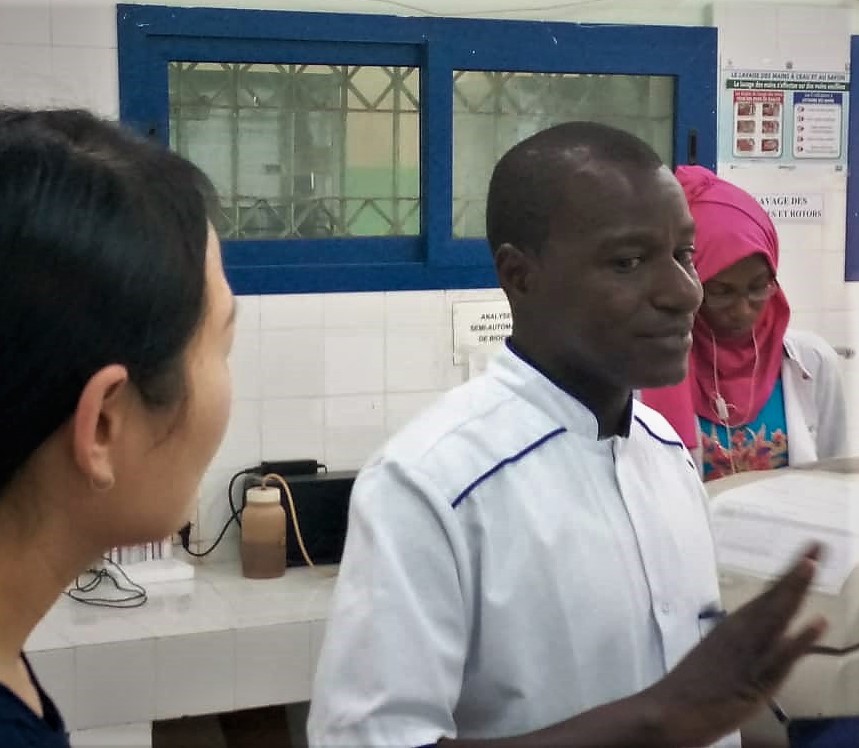MTaPS started working with the DQSHH in August 2019 to conduct a baseline situation analysis of the hospital of Tivaouane, a city 100 km east of Dakar. The assessment, using the World Health Organization’s IPC Assessment Framework (IPCAF) for health facilities, showed a score of 13% (100 out of 800), demonstrating poor IPC capacity at the facility. Several challenges were observed, including a lack of equipment for collecting and packaging biomedical waste, limited IPC capacity of health care workers, and no capacity for surveillance and detection of health care-associated infections. Following this exercise, Tivaouane hospital’s CLIN developed an improvement plan and committed to fully implementing it with support from the DQSHH and MTaPS.
The CLIN started reforming its functioning by putting in place regular meetings between the committee and the hospital’s leadership and by submitting quarterly reports to the MOH. MTaPS conducted tailored IPC trainings; including a training of trainers; a training for medical doctors, nurses, and midwives; and a training for the hospital’s support staff. The trainings focused on IPC components such as hand hygiene and waste management and used a continuous improvement approach to self-monitor activity implementation. MTaPS also monitored progress remotely and through field visits to track both achievements and challenges.
After six months, the hospital’s CLIN conducted a self-assessment using the IPCAF and obtained an improved score of 38% (300 out of 800), raising the hospital’s IPC capacity from inadequate to basic. After a year, the CLIN overcame additional challenges, including successfully implementing proper biomedical waste management. These efforts further helped the hospital drive up its IPC capacity to an intermediate level with a score of 68% (500 out of 800).
“After a year of implementing the IPC action plan […] in Tivaouane, we have noticed a remarkable improvement in the management of biomedical waste, thanks to the support of MTaPS and the DQSHH in the training of hospital staff, especially the training that was carried out in the local language to enable frontline workers to master the biomedical waste component.” — Dr. Ablaye Sakho, President of the medical commission of the Tivaouane hospital

